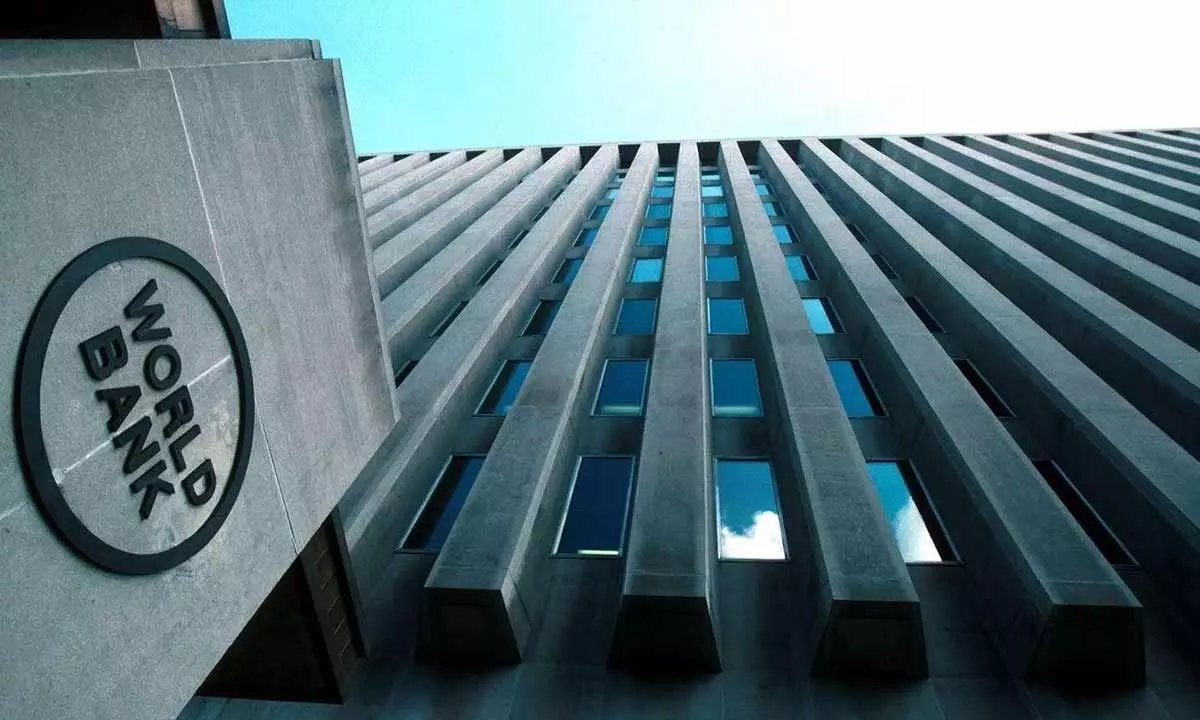World Bank praises India's digital infrastructure for its transformative potential
Share :

World Bank and ADB foresee slowdown in Indian economy
Advocating DPI's potential in helping nations leapfrog digital transformation, a G20 document prepared by World Bank has praised India's approach in unlocking the power of digital public infrastructure, including Aadhaar and UPI, for financial inclusion.
New Delhi: Advocating DPI's potential in helping nations leapfrog digital transformation, a G20 document prepared by World Bank has praised India's approach in unlocking the power of digital public infrastructure, including Aadhaar and UPI, for financial inclusion.
The impact of DPI goes beyond inclusive finance, to supporting health, education, and sustainability, says the foreward of the document `G20 policy recommendations for advancing financial inclusion and productivity gains through DPI'. "The India stack exemplifies this approach, combining digital ID, interoperable payments, a digital credentials ledger, and account aggregation. In just six years, it has achieved a remarkable 80 per cent financial inclusion rate—a feat that would have taken nearly five decades without a DPI approach," it said.
India's digital ID system Aadhaar, digital payment system UPI, data-exchange platform Digilocker and its other showcase platforms have found a special mention among the examples of DPIs "all of which play a leading role in the advancement of financial inclusion in many countries". Other systems mentioned were Singapore's Singpass, the Philippines' PhilSys, and the UAE's UAE-Pass among the digital ID systems; Brazil's Pix, India's UPI, Türkiye's FAST, the European Union's TIPS, and Thailand's PromptPay under fast payment systems; as well as Estonia's X-Road, Singapore's MyInfo, Australia's Customer Data Right, and the UK's Open Banking. Put simply, Digital Public Infrastructure (DPI) refers to blocks or platforms such as digital identification, payment infrastructure and data exchange solutions that help countries deliver essential services to their people, empowering citizens and improving lives by enabling digital inclusion. DPIs are interoperable, open, and inclusive systems supported by technology and provide essential, society-wide, public and private services that play a critical role in accelerating this digital transformation in an inclusive manner.
The document also cites India's Data Empowerment and Protection Architecture (DEPA) and India's Account Aggregator (AA) Framework. On Fast Payment Systems, it noted that in some countries, such as India and Brazil the adoption has been "particularly quick and transformative". UPI, it said, has been widely adopted, benefitting from a user-friendly interface, open banking features, and private sector participation. "The UPI platform has gained significant popularity in India; more than 9.41 billion transactions valuing about Rs 14.89 trillion were transacted in May 2023 alone. For the fiscal year 2022–23, the total value of UPI transaction was nearly 50 per cent of India's nominal GDP," the report said. The document goes on to say that an aspect that makes DPIs unique, and that can further reduce existing constraints, is their ability to complement each other or be integrated in end-to-end workflows. One such service enabled by the interaction of open APIs and digital ID systems is the e-KYC or remote authentication services.
A case in point is India's Aadhaar biometric identification system, which covers over one billion people and supports APIs, enables remote identification and authentication, it observes. Financial service providers can thus authenticate an individual's identity remotely, even by using selfie-based mechanisms to substitute for in-person customer due diligence verification requirements, it said. India has also figured prominently in the section on `DPIs' Potential Added Value for the Private Sector', that cites how FSPs and MSMEs could benefit from these digital networks. "For some nonbank financial companies (NBFCs) in India, the AA ecosystem enabled an 8 per cent higher conversion rate in SME lending, a 65 per cent savings in depreciation costs, and a 66 per cent reduction in costs related to fraud detection. According to industry estimates, banks' costs of onboarding customers in India decreased from USD 23 to USD 0.1 with the use of DPI," it said. Through open application programming interface (APIs), India's Open Credit Enablement Network (OCEN) enables MSMEs participating in digital markets to secure credit by using information about their business history, rather than pledging physical assets as collateral. According to the document, in India, the implementation of various DPIs is considered to have played a critical role in the increase in account ownership from just one-fourth of adults in 2008 to almost 80 per cent a decade later "a journey that it is estimated would have taken up to 47 years without DPIs










